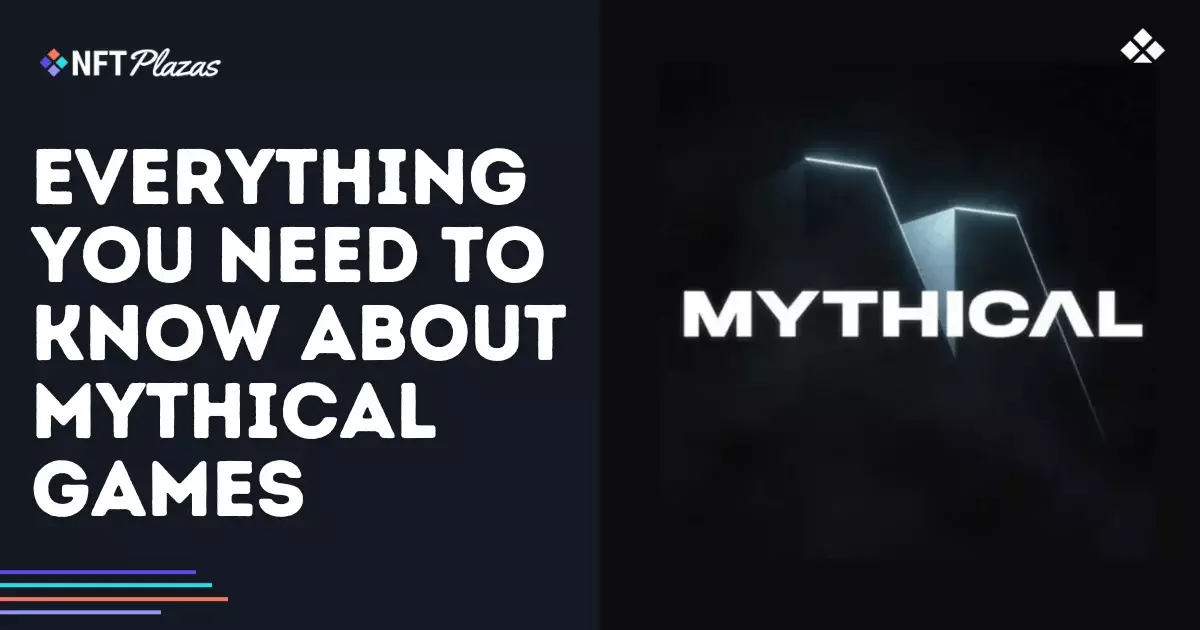In recent years, the notion of players owning their in-game assets through blockchain technology captivated industry innovators and gamers alike. Mythical Games emerged as a torchbearer in this movement, asserting that true ownership could revolutionize the way we interact with digital entertainment. This ambitious vision, rooted in blockchain decentralization, promised a paradigm shift—empowering players to trade, collect, and monetize their virtual goods. However, beneath this alluring promise lies a web of complexities and contradictions that threaten to undermine the very movement Mythical champions.
The core idea was simple but revolutionary: transfer property rights from centralized entities to individual players via NFTs. While this promised a more engaged, economically active community, it also faced substantial skepticism. Digital ownership is a compelling narrative, but in reality, gamers are less interested in managing blockchain wallets and more fascinated with compelling gameplay. Mythical’s early emphasis on seamless onboarding—allowing players to sign up with an email—attempted to obscure blockchain’s technical complexity. Yet, the core issue remains: does blockchain genuinely enhance gaming experiences, or is it a superficial add-on that distracts from gameplay’s essence?
Mythical positioned itself as a pioneer capable of balancing this dichotomy. They leveraged high-profile investments, including backing from Andreessen Horowitz and partnerships with major brands like NFL and FIFA to boost their credibility. Such associations provided a veneer of legitimacy, distancing the technology from the often-criticized hype cycle surrounding crypto. Still, deep down, many skeptics doubted whether these collaborations would translate into sustainable engagement or merely hype-driven blips in the broader gaming landscape.
The Reality of Web3 Gaming: Overhyped Potential or Premature Innovation?
Despite lofty ambitions, Mythical’s journey has been marred by the stark realities of a volatile market environment and the murky waters of blockchain technology. Their flagship game, Blankos Block Party, showcased early success but failed to maintain long-term player interest as it transitioned from PC to mobile—highlighting one of web3 gaming’s inherent flaws: novelty wears off. Bloated with blockchain mechanics, the game struggled to retain players beyond initial hype.
More telling was Mythical’s rapid pivot away from PC Fortnite-like worlds to mobile-focused releases. This move underscores a brutal truth: web3 and blockchain are not yet seamlessly integrated into mainstream gaming culture. Instead, they remain to many players an unnecessary complication—an outlier rather than an essential feature. Mythical’s attempt to embed blockchain into popular franchises like Nitro Nation racing or FIFA Rivals hit a similar snag. While initial downloads surged, sustained engagement lagged, proving that blockchain’s appeal is often superficial when not embedded organically into gameplay.
Furthermore, internal struggles within the company—such as leadership departures and lawsuits—reveal a fragile ecosystem. The departure of key executives like Rudy Koch, coupled with legal disputes, exposes the tension between ambitious technological ambitions and the operational realities of a highly uncertain market. These incidents did little to inspire confidence in the long-term viability of Mythical’s approach, revealing that even trailblazers are vulnerable to market volatility and internal discord.
The Hard Truth of Web3 Adoption: Hype vs. Practicality
Mythical’s attempts to mainstream blockchain gaming face far more than technological obstacles. Regulatory uncertainties and the cultural skepticism surrounding cryptocurrencies loom large. Even as Mythical achieves impressive growth—millions of downloads, global brand partnerships, and a vibrant ecosystem—the question remains: at what cost?
Their innovative models, like the Mythos Foundation and the move to Polkadot, strive to make operations faster and more scalable. But technological imperfection persists; blockchain transactions are still slow and costly compared to traditional gaming transactions, undermining the seamless experience players expect. Moreover, hype-driven success stories like NFL Rivals—garnering a million downloads in a month—offer only a tentative glimpse into mainstream acceptance. The question is whether such spikes are sustainable, or just temporary flashes fueled by novelty and current marketing pushes.
The fact that Mythical had to lay off staff and shut down parts of Blankos signals a sobering reality: the hype often outpaces the substance. Gaming is about engagement, storytelling, and immersive experiences—elements that blockchain’s current form struggles to support convincingly. The magic lies more in the branding and investment than in the game mechanics themselves.
Is Web3 Gaming a Fool’s Gold or Just the Beginning of True Innovation?
As Mythical continues expanding into new genres and collaborations, the overarching concern is whether blockchain gaming is destined to become a passing trend, or if it’s a nascent technology that requires more time and refinement. The industry’s biases are clear: skepticism reigns among traditional gamers who see no need for blockchain-based assets, while crypto enthusiasts overestimate the technology’s current readiness.
Mythical’s stance—that blockchain will eventually embed itself seamlessly into everyday gaming—is optimistic but arguably naive. The company’s investments and pioneering efforts have undeniable merit—they’ve introduced blockchain to mainstream platforms like Epic and leveraged significant partnerships. Yet, success in this space hinges on a critical pivot: making blockchain invisible, reliable, and genuinely enriching gameplay rather than spectacle.
What’s certain is that Mythical has already pushed the conversation forward. They’ve demonstrated that blockchain can power economies within games, introduce new monetization models, and forge bridges between traditional sports and digital collectibles. But unless the technology becomes more user-friendly, less costly, and more integrated into core gameplay, the prospects remain uncertain. The journey ahead won’t be linear; it will depend heavily on whether the industry and players are willing to accept a more gradual, pragmatic approach—one that recognizes the current limits rather than overhyping what blockchain can immediately deliver.















